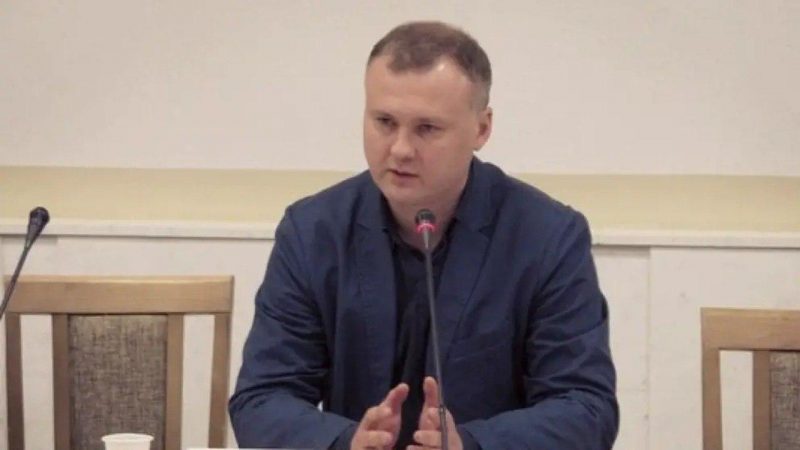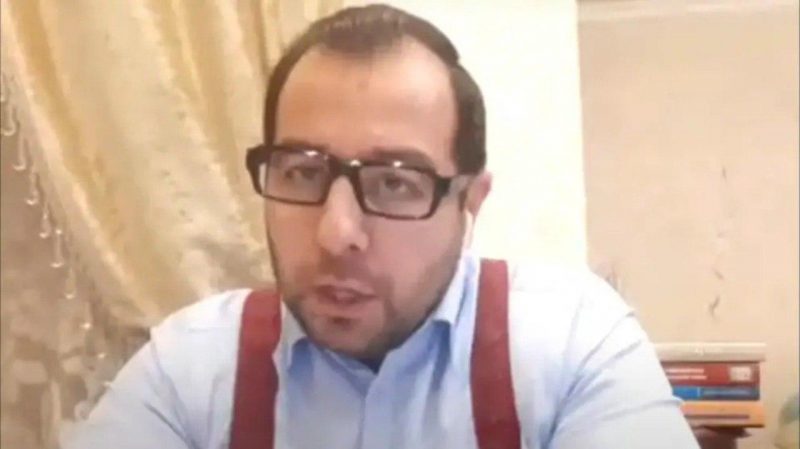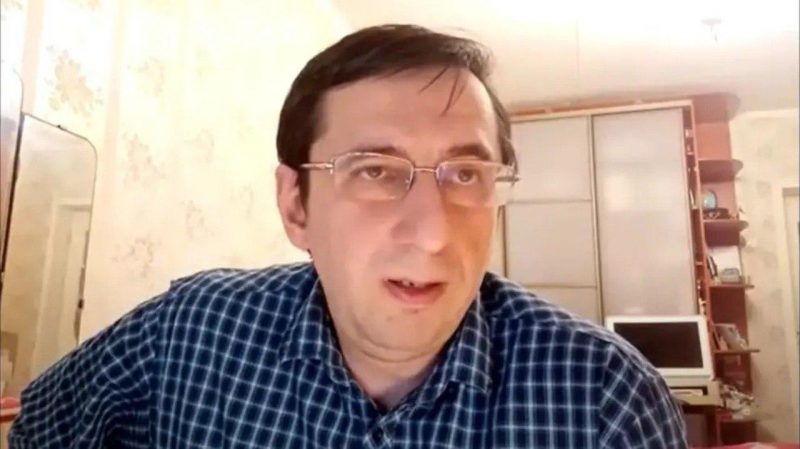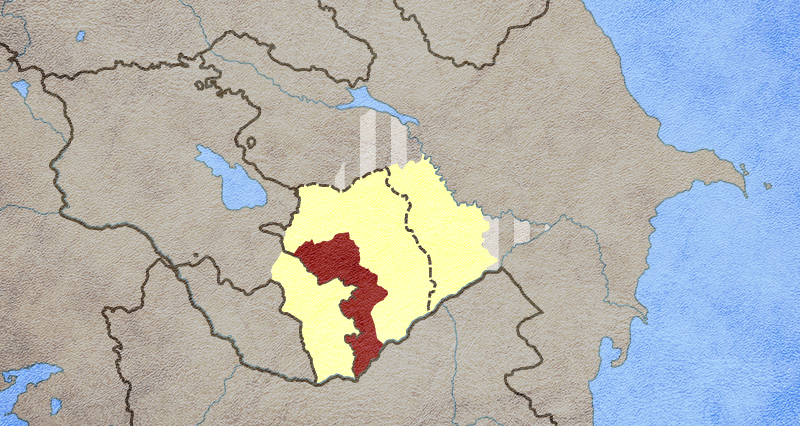The online conference of the expert club “Caucasus – Eurasia” took place on December 14, 2021. The event was attended by experts from Azerbaijan, Armenia, Turkey, Russia and Iran. The main topic of discussion was the “Syunik-Zangezur corridor – unblocking of all transport links in the region: pros and cons”.
The discussion participants touched upon the following topics: the geopolitical background of the Zangezur corridor and the role of Russia in ensuring security, the significance of the Zangezur corridor for Eurasian integration projects, the economic interests of the parties in the implementation of the Zangezur corridor, the possibility of restoring economic ties between Azerbaijan and Armenia through the intensification of bilateral trade, as well as the other side of the corridor – costs and threats.
The conference was opened and chaired by Valery Korovin, director of the Center for Geopolitical Expertise (CGE), a permanent member of the Izborsk Club.
The head of the analytical department of the International Eurasian Movement Vladimir Kireev made an introductory speech, recalling the history of the issue. According to the speaker, serious mistakes made by Soviet leadership have led to today’s tangle of contradictions.

According to Kireev, the unblocking and development of transport routes is in the interests of all countries in the region. At the same time, it is necessary to ensure the international status of the corridor, which can only be ensured by a force that is not a party to the conflict between Armenia and Azerbaijan.
“Only Russia has the confidence of all parties, and only Russia can ensure the safety of facilities and traffic flows,” he said.
Political scientist, coordinator of the expert club “Caucasus – Eurasia” Nazaket Mammadova stated with regret that a huge problem at the moment is the lack of unanimity between the participants in the process.
“This is reminiscent of the events of a century ago, when there was also a struggle between major powers in Transcaucasia,” she explained. – “First of all, this is a civilizational confrontation. In particular, in Armenia there is a confrontation between pro-Russian and pro-Western forces, whose interests in the international arena do not coincide. And in this situation, the opening of the Zangezur corridor under the control of Russian border guards would ensure the safety of transport links for all participants. Some countries are resisting this process for fear of losing control over the region.”
The expert is convinced that unblocking the corridor is in the interests of Azerbaijan, as it would provide access to Nakhichevan and help reduce tension and establish peace and stability in the region.
According to Mamedova, Russia is acting as a stabilizer of the situation, and the opening of the Zangezur corridor under the control of the Russian peacekeeping forces would allow expanding not only regional, but also international economic cooperation.
Giving the floor to the next speaker, Valery Korovin, in turn, drew attention to the need to exclude from the processes those players who throughout history have been working to destabilize the region.
“Previously, it was the Anglo-Saxon world, Britain, now – the United States and its allies. Any participation of Western countries does not benefit the main participants in these processes. Also, NATO is a serious factor of destabilization,” he explained.
Meanwhile, according to Korovin, Russia is a natural stabilization factor, which is not interested in intensifying conflicts in its own underbelly.
In turn, the expert, independent political scientist, head of the “Armenia-Iran” ethnic project Arsen Gevorgyan drew attention to the need to clarify the wording. In particular, in his opinion, the term “corridor” is incorrect and has a military-political connotation.
Dmitry Rodionov, director of the Center for Geopolitical Research of the Institute for Innovative Development, believes that it will take a long time to meet, discuss and argue about the Zangezur corridor, since the parties are not ready to fully work to achieve the goals stipulated in the trilateral agreement of November 9, 2020.
“Nobody has yet offered any specifics of what it will be like,” he said. – Speaking about the corridor, we obviously mean by default the road along the Iranian border – through Meghri. But there is nothing about this in the agreements, like the words ‘corridor’. It talks about unblocking transport communications, but it is important to clarify this point, because there may be other options. Who said that the road should be exactly the one that goes along the border?”
Rodionov drew attention to the fact that if we are talking about the railway, then it should be remembered that not only the railway stations were badly damaged there, but the canvas also dismantled.
“Who will restore it and with what money? If Armenia – then are there funds for this? If Azerbaijan or Turkey, then on what legal basis will they build something on the territory of another state? This requires an international treaty,” he explained.
Anar Hasanov, candidate of philological sciences, political scientist, and senior lecturer of the philological faculty at RUDN University in Moscow, recalled that the idea of unblocking transport corridors belongs to three presidents – Azerbaijan, Armenia and Russia. And in this regard, it is not ethical to question the decisions of the heads of the three states.

At the same time, according to the speaker, the entry of Azerbaijan and Turkey into the Eurasian Economic Union, as well as the Customs Union, is a matter of time.
“This will be supported by various forces in society and political groups,” he said.
Political scientist, editor of the site of the Scientific Society of Caucasian Studies kavkazoved.info Andrei Areshev noted that discussions about the situation in the Caucasus are often accompanied by emotional intensity.

“This is due to the fact that the negotiations have not been completed, and the news about the work of the trilateral intergovernmental commission is rather contradictory,” he stated.
Areshev drew the attention of the audience to the fact that the statements of the President of Azerbaijan indicate that he is acting from the position of a winner.
“This is logical, but it seems to me that the negotiation process is needed in order to come to a mutually beneficial, mutually acceptable, compromise solution,” he is convinced.
Deputy Dean of the Russian School at the Economic University of Azerbaijan, candidate of historical sciences Anar Eyyubov, in turn, recalled that in Soviet times, Armenia and Azerbaijan, effectively interacting, achieved noticeable economic success.
“Any corridors and transport routes lead to the enrichment of both peoples, as well as neighboring states. Each country, of course, has different forces, but it must be admitted that Eurasian integration can play a positive role. But at the same time it is important to enter into an alliance, marking, in the end, the boundaries. Stop talking about what happened in the 18th century or BC! And after resolving the burden of these issues, when we start to trust each other, there will be an economic effect,” he summed up.
The editor-in-chief of the Iranian news site “Vasti Press”, analyst Parviz Nemati stated that each of the parties views the situation only from its own perspective, which becomes a source of problems. At the same time, the speaker positively assessed the prospect of unblocking the tracks.
“Everyone understands how profitable it is today. This is the future economy! For Iran, the railway is especially important, which has been operating, delivering goods and passengers from Moscow to Tehran since Soviet times. This is very important for the economy, it is a very good way of delivery!” – declared Nemati.
At the same time, according to the speaker, the economic project cannot be given a military-political dimension. He noted that “Russia and Iran are countries that have always acted as guarantors of security,” calling for an agreement describing in detail transport projects and infrastructure, where only their peaceful use would be spelled out.
United World International expert and political scientist from Turkey Mehmet Perinçek in his speech focused on the role of the West in the region.
“If we eliminate the factor of the West, we will solve many problems in the region, including socio-economic ones. The destabilization of the region is in the interests of the West. Normalization of relations between Turkey and Russia, Azerbaijan and Armenia will benefit the entire region and will prevent Western interference in the affairs of sovereign states. For this reason, it is important to unblock transport links and support the integration of the countries of the region,” he explained.

In his speech, Mehmet Perinçek emphasized that the Organization of Turkic States and the integration between the Turkic states are a part of the Eurasian integration, therefore, he will not be against any regional country, but will move forward in cooperation with countries such as Russia, China and Iran.
Summing up the results of the conference, Valery Korovin agreed with Mehmet Perinçek, stating that peace and prosperity in the region are possible only when there are no Western forces in it.
At the same time, Korovin allayed the fears of the speakers from Armenia that the opening of the Syunik-Zangezur corridor would increase the influence of Azerbaijan and Turkey in the region. According to the expert, the unblocking of all transport corridors, all transport routes will strengthen all players, including Russia as a peacekeeping country, Armenia and Iran.
“By unblocking transport networks, Armenia will increase its economic weight, because trade is intensified primarily between Armenia and Russia. Armenia will gain access to Russian markets, and through Russia – to all others, including European ones,” Korovin stressed.
At the same time, according to Korovin, Azerbaijan can also increase its influence and its status in the region by intensifying trade within the Eurasian Economic Union, of which the country is not currently a member, unlike Armenia.
“It is then that a balanced intensification of trade relations will really take place within the entire group of participants in this regional trade and economic activity,” the political scientist is convinced.
The conference was held on the Zoom platform and was broadcast in real time via the YouTube video service. As a result of the event, a collection will be released.
Full recording of the online conference can be watched here:

















Leave a Reply